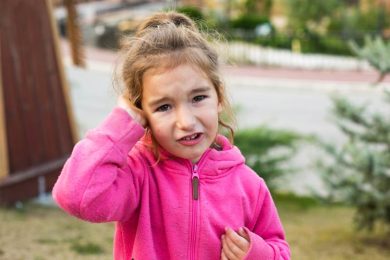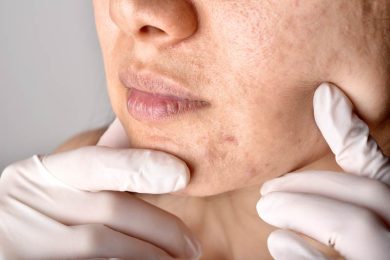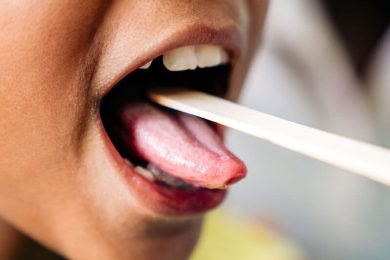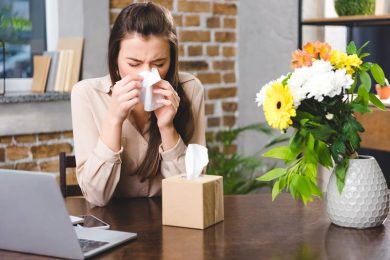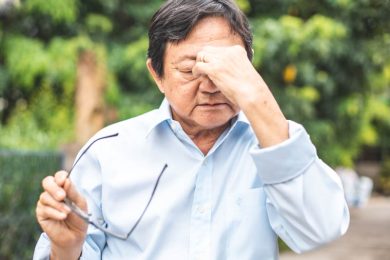What Are Nosebleeds?
There are two types of nosebleeds: anterior and posterior. Anterior nosebleeds make up about 90% of all nosebleeds and are caused by a broken blood vessel in the front part of your nose. Posterior nosebleeds are less common, but more serious, and are caused by a broken blood vessel in the back part of your nose.
Nosebleeds are common, especially in children. They usually aren’t serious and often can be stopped with home treatment. However, schedule an appointment with our team if you have frequent or severe nosebleeds, or if a nosebleed lasts longer than 20 minutes.
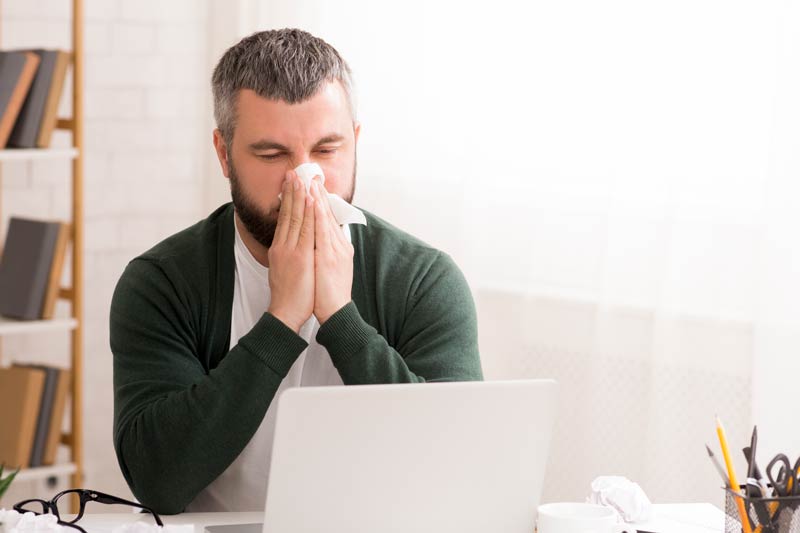
What Causes Nosebleeds?
When the membranes lining the inside of the nose dry out and become irritated, the blood vessels can break, causing a nosebleed. These are more common in the winter months, when the air is cold and dry. Other factors that may contribute to nosebleeds include colds and allergies, sinus infections, nose picking, blowing the nose too hard, frequent sneezing, overuse of nasal sprays, blood thinning medications, foreign objects in the nose, and trauma to the nose.
If nosebleeds are chronic or occur frequently, they may be the result of other underlying conditions. In this case, it’s important to schedule an appointment with our team at Texas ENT & Allergy to determine the appropriate treatment
What Are the Symptoms of Nosebleeds?
The nose is prone to bleeding due to a large number of blood vessels close to the surface, especially overlying the cartilage of the nasal septum. When these burst, blood may trickle (or in some instances, seep) from the nose.
How are Nosebleeds Treated?
If you are experiencing a nosebleed, first and foremost, stay calm! Though your nosebleed may look serious, chances are there is much less blood than appearances would lead you to believe. Sit down and lean forward slightly while pinching your nostrils together using a thumb and index finger. Hold this position for at least five minutes or until the bleeding has stopped.
Refrain from blowing your nose afterwards. If the bleeding hasn’t stopped after 20 minutes or is the result of an injury to the face, seek medical attention. A medical professional can cauterize the blood vessels or insert packing into the nasal cavities.
Sometimes, anticoagulants and anti-inflammatories can cause nosebleeds. If you suspect this is the case, talk to us about alternative medications.
If you are prone to frequent nosebleeds, there are steps you can take to prevent them. Keep the nasal lining moist or use a saline nasal spray. Run a humidifier, especially in the winter or if you are visiting a dry climate. Quit smoking; this causes dryness and irritation.



